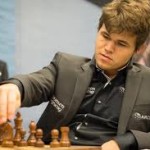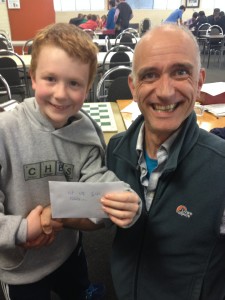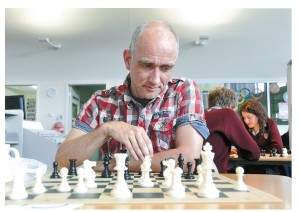Chess Player versus Chess Coach – 29/05/2015
I often get asked when I will be playing in a tournament. People seem keen to link my ability for coaching to how well I could perform in a tournament. In order to prepare for a tournament, you need to spend many hours studying and reviewing games of opponents. In order to prepare students for tournaments you need to spend many hours studying, what style would suit their game for example defensive or attacking, and reviewing games of opponents. It is impossible to do both without compromising.
I have played tournaments for many years, but when I started coaching I made the commitment to my students to be completely devoted to their growth, not my own. Not only do I need to prepare their technical skill, a coach also focuses on all the aspects around the game; posture, attitude and mental state. A coach does not need to be the best chess player, they need to be able to transfer their skills and aim to have their students become better chess players then they are. Grandmaster Judith Polgar retired from chess last year to start her own chess school; she did not start this level of coaching until she had finished competing for herself.
Current World Champion Magnus Carlsen has set the ultimate example for finding good coaches and how they not necessarily need to be known for their play. After working with Garry Kasparov for many years – yes the former world champion Garry Kasparov – Carlsen dropped Kasparov and chose to be coached by a team of people, among others Fide Master Espen Agdestein. Espen is not a grandmaster, but is very good at analysis and provide positional expertise for Carlsen, showing the world that you should not judge a coach on their own play.
coaches and how they not necessarily need to be known for their play. After working with Garry Kasparov for many years – yes the former world champion Garry Kasparov – Carlsen dropped Kasparov and chose to be coached by a team of people, among others Fide Master Espen Agdestein. Espen is not a grandmaster, but is very good at analysis and provide positional expertise for Carlsen, showing the world that you should not judge a coach on their own play.
Just because you have been a good footy player, does not mean you are good at coaching an entire team. Just because you are a good tennis player, does not mean you are going to be good at transferring those skills to others.
Many countries like the Netherlands and even the world chess organisation have recognised this concept for years and have in place coaching courses and certificates. They have all realised you should not judge a coach just on their own chess skills, but rather on the way they are able to transfer their skills.
 So I am sorry to disappoint if you were waiting to see me compete in any upcoming tournaments, I have retired from competitive chess a long time ago. But I love what I do and study chess so I can transfer that knowledge to my students so they can flourish and grow. And even though I enjoyed winning tournaments during my chess career, there is nothing more rewarding than seeing young players on stage being acknowledged for their hard work.
So I am sorry to disappoint if you were waiting to see me compete in any upcoming tournaments, I have retired from competitive chess a long time ago. But I love what I do and study chess so I can transfer that knowledge to my students so they can flourish and grow. And even though I enjoyed winning tournaments during my chess career, there is nothing more rewarding than seeing young players on stage being acknowledged for their hard work.
